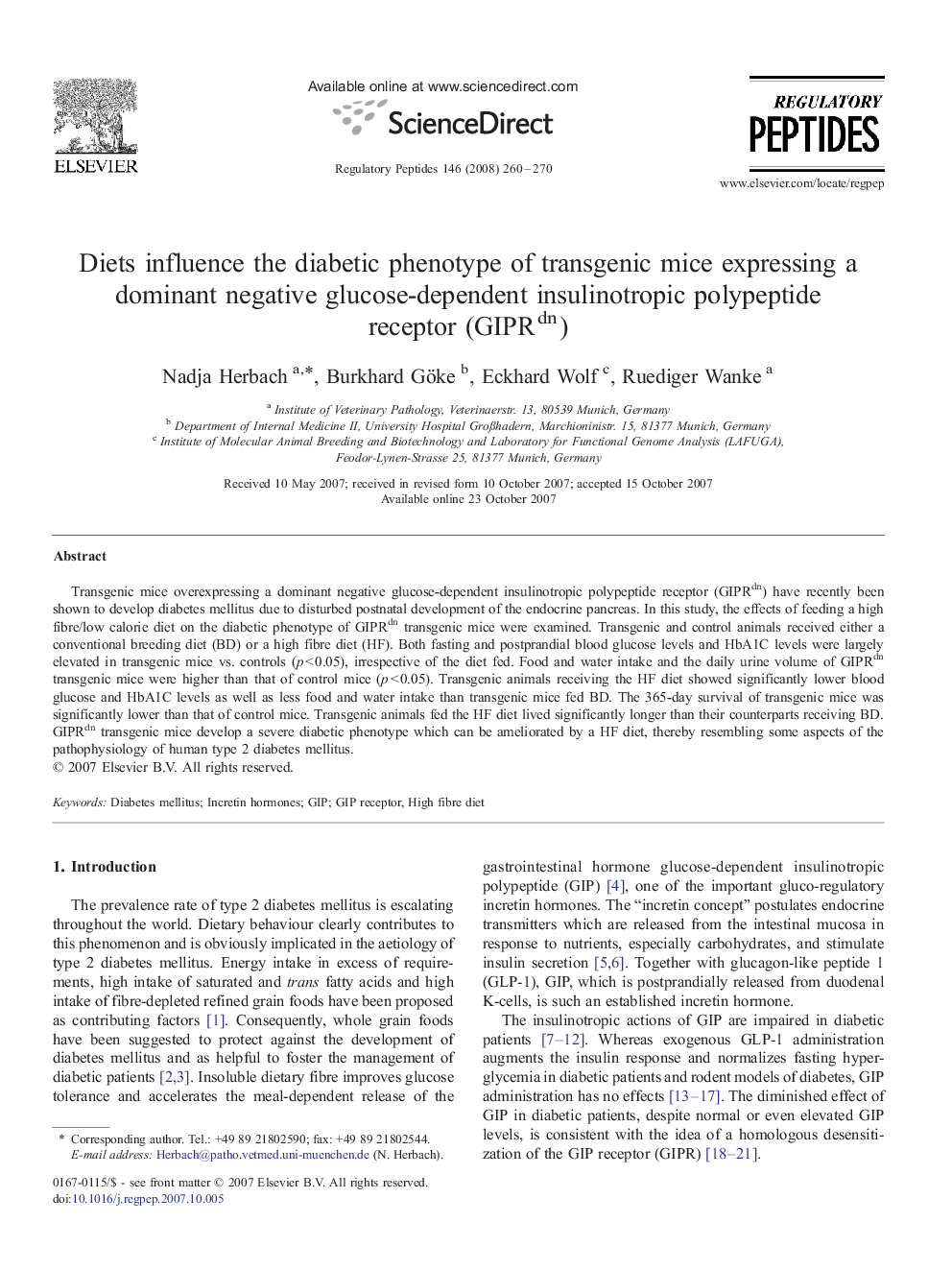| کد مقاله | کد نشریه | سال انتشار | مقاله انگلیسی | نسخه تمام متن |
|---|---|---|---|---|
| 2023249 | 1542439 | 2008 | 11 صفحه PDF | دانلود رایگان |

Transgenic mice overexpressing a dominant negative glucose-dependent insulinotropic polypeptide receptor (GIPRdn) have recently been shown to develop diabetes mellitus due to disturbed postnatal development of the endocrine pancreas. In this study, the effects of feeding a high fibre/low calorie diet on the diabetic phenotype of GIPRdn transgenic mice were examined. Transgenic and control animals received either a conventional breeding diet (BD) or a high fibre diet (HF). Both fasting and postprandial blood glucose levels and HbA1C levels were largely elevated in transgenic mice vs. controls (p < 0.05), irrespective of the diet fed. Food and water intake and the daily urine volume of GIPRdn transgenic mice were higher than that of control mice (p < 0.05). Transgenic animals receiving the HF diet showed significantly lower blood glucose and HbA1C levels as well as less food and water intake than transgenic mice fed BD. The 365-day survival of transgenic mice was significantly lower than that of control mice. Transgenic animals fed the HF diet lived significantly longer than their counterparts receiving BD. GIPRdn transgenic mice develop a severe diabetic phenotype which can be ameliorated by a HF diet, thereby resembling some aspects of the pathophysiology of human type 2 diabetes mellitus.
Journal: Regulatory Peptides - Volume 146, Issues 1–3, 7 February 2008, Pages 260–270